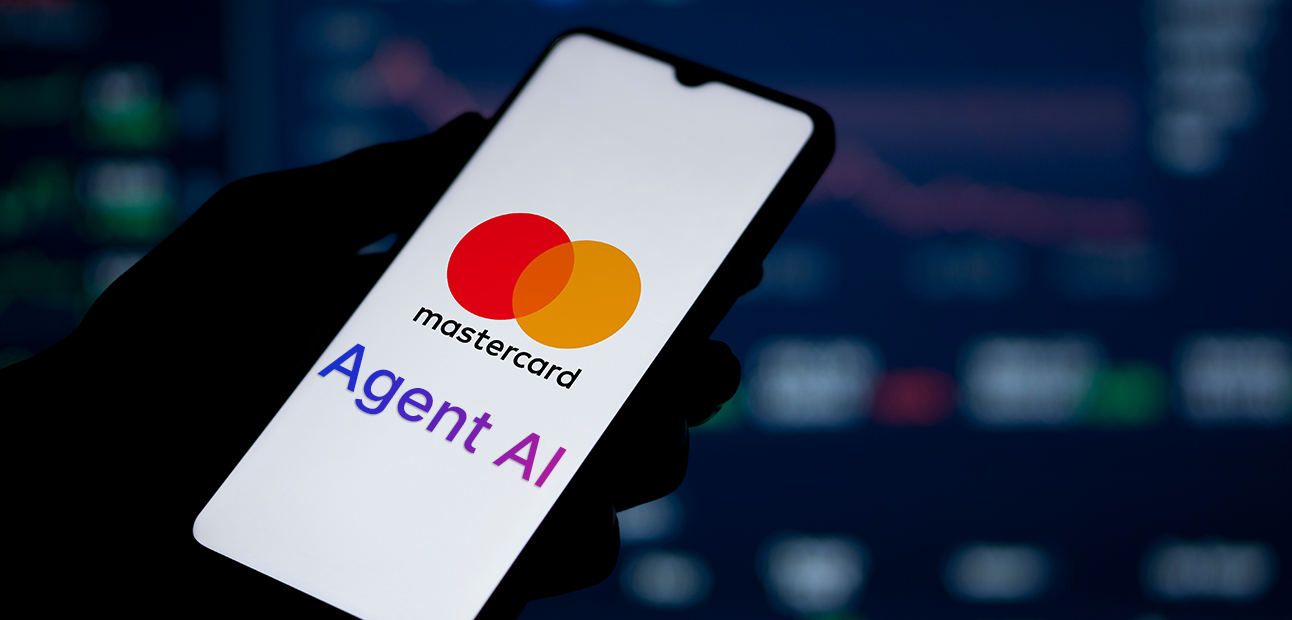Why Mastercard’s UAE launch marks the beginning of a structural shift in payments, governance, and market competition.
A New Economic Actor Enters the Payments System
The introduction of Mastercard’s Agent Pay in the UAE represents more than a milestone in payments innovation — it may be the first real example of autonomous machine actors participating directly in economic exchange. The pilot, executed with Majid Al Futtaim and Dataiera, demonstrates an AI agent carrying out an end-to-end purchase independently of human involvement.
Source: Mastercard Newsroom
This is a turning point because it disrupts the central assumption embedded in all modern regulations, checkout flows and risk models: that the human is the one initiating the payment. With Agent Pay, Mastercard formally introduces a third economic actor into the transaction triangle — not just consumer ↔ merchant ↔ payment network, but consumer → agent → merchant → network.
This redefines not only the “how” of payments but the philosophical and operational “who”.
What Agent Pay Actually Is: Delegated Autonomy, Not Automation
Agent Pay is often described as a frictionless checkout tool, but that understates its significance. It is a delegation protocol — a way for consumers to assign intent to an AI agent, which then performs the commercial action autonomously. In the UAE demonstration, the agent evaluated options, selected a preferred cinema experience, and executed the payment without the user engaging with the checkout.
Unlike traditional automation, which merely accelerates human actions, Agent Pay introduces computational agency. The AI agent does not simply replicate clicks; it interprets constraints, optimises outcomes and negotiates choices in real time.
This elevates the agent from a passive assistant to an algorithmic decision-maker acting on a consumer’s behalf.
How Agent Pay Works: The New Infrastructure of Machine-to-Merchant Transactions
Agent Pay operates on a layered framework designed to allow AI agents to transact safely within Mastercard’s network. Three components define its architecture:
Intent Capture
The user expresses a goal (“Book two tickets at 20:00 under €40”). This becomes the agent’s actionable boundary. The intent itself becomes a data artefact that must be signed, recorded and traceable.
Agent Authentication and Tokenisation
Mastercard’s Agentic Commerce Framework establishes a new form of identity: the agent identity. AI agents receive cryptographically bound “agent tokens”, distinct from card tokens, that authenticate them as authorised entities.
Source: Mastercard Agentic Commerce Framework
This is a paradigm shift: the network no longer verifies the user — it verifies the user’s delegated computational proxy.
Execution with Audit and Transparency
Once authorisation is established, the agent initiates the purchase. The network manages the lifecycle: dynamic token provisioning, consent enforcement, and risk evaluation. Edgar Dunn & Co. notes that risk engines must evolve from detecting human anomalies to interpreting “agent behavioural signatures”.
Source: Edgar Dunn
This means machine actions will be monitored not only for fraud, but for deviations in agent intent, preference drift or anomalous optimisation patterns.
Why the UAE Was First: An Ideal Sandbox for Autonomous Commerce
The UAE’s position as an early adopter is not accidental. The region’s regulatory flexibility, government-led AI strategy and willingness among large retailers to run frontier experiments made it a natural launchpad. During the announcement, the UAE Minister of State for Artificial Intelligence reinforced the nation’s goal to set global benchmarks for AI commerce.
Source: Gulf News
In essence, the UAE serves as a regulatory green zone — a controlled environment where the consequences of introducing a non-human actor into the payment ecosystem can be tested without the rigid constraints of European legislative complexity.
Europe’s Path: A Collision Between Innovation and Regulation
Mastercard has already announced that global rollout — including Europe — is expected within three to six months following the UAE pilot.
Source: The Fintech Times
But Europe is structurally different. The arrival of autonomous agents intersects with several regulatory regimes simultaneously:
- PSD2/SCA, which assumes human-initiated authentication
- GDPR, which regulates personal data processed by agents
- EU AI Act, which controls autonomous system behaviour, transparency and explainability
- Digital Markets Act, which may govern how large platforms can prioritise agent interactions
- Consumer Rights Directive, which dictates withdrawal, error handling and liability
The challenge is that none of these frameworks were designed for a scenario where a non-human actor initiates a transaction. As McKinsey writes, agentic commerce introduces a “third actor problem” requiring explicit liability rules and clearlines of accountability.
Source: McKinsey
Thus, European rollout will likely occur in phased layers: closed pilots in 2025–26, broader market availability in 2026–27, and full ecosystem adoption by 2030.
Economic Implications: Competition Shifts From Human Attention to Agent Algorithms
The rise of autonomous commerce fundamentally rewrites market competition. Today, merchants compete for consumer attention. In an agent-driven market, merchants will compete for algorithmic attention.
AI agents will optimise across price, delivery time, stock availability, sustainability signals, loyalty bonuses, and even behavioural patterns. Merchants who fail to expose their catalogues in agent-readable formats may effectively become invisible.
This is the birth of a new discipline:
AEO — Agent Engine Optimisation, the successor to SEO.
Winning in an agentic marketplace means appealing not to humans but to computational evaluation models.
Behavioural Implications: Trust, Control and Psychological Delegation
Consumer trust remains the biggest barrier to adoption. Bain reports that only a minority of consumers currently trust AI agents to make purchases autonomously.
Source: Bain
However, trust evolves in phases. Consumers first delegate repetitive, low-risk tasks (movie tickets). Next, time-sensitive tasks (travel tickets, deliveries). Eventually, high-value decisions (appliances, financial products).
As delegation increases, the human role shifts from decision-maker to supervisor of an algorithmic personal assistant — a profound psychological shift in consumer behaviour.
Impact for European PSPs and Merchants
For PSPs like NOVALNET, agentic commerce requires a redesign of technical, operational and commercial layers:
- Gateways must recognise agent tokens, not just card tokens.
- Fraud engines must detect deviations in agent behavioural patterns.
- Merchant APIs must be structured for autonomous agent parsing.
- Chargeback, liability and dispute flows must be agent-aware.
- “Explainability logs” may become mandatory to show why an agent chose an option.
Those who anticipate these architecture shifts will obtain early-mover advantage when agentic commerce becomes mainstream.
A New Commercial Architecture Is Forming
Agent Pay is not an incremental improvement — it is the beginning of a new architecture for digital commerce. The introduction of AI agents as economic actors will reshape regulation, infrastructure, market competition and consumer psychology.
Europe will adopt this model with caution, but the direction is clear and irreversible. The infrastructure is being built, the regulation will adjust and the market will adapt. As with mobile commerce a decade ago, early adopters will define the next era of digital payments.
For PSPs, retailers and ecosystems across Europe, the question is not whether to prepare — but how far ahead they want to be when autonomous commerce becomes the default.
What This Means for Novalnet — And Why Preparing Now Matters
Agent Pay makes it clear that autonomous, AI-driven payments are becoming a real part of global commerce. For Novalnet, this shift is a chance to support merchants early—by preparing for agent-initiated transactions, enhanced tokenisation, and new regulatory expectations. As the market moves toward autonomous checkout, being ready will define who stays ahead.
Speak with our payment specialists to prepare your business for AI-driven, autonomous commerce.
Alexander Burba is a Performance Marketing Specialist at Novalnet AG in Munich, where he leads digital acquisition and brand initiatives. With over 7 years of experience in B2B SaaS, FinTech, and IT marketing, Alexander has supported international teams in Germany and Ukraine, serving clients across the EU, US, and global markets. He combines data-driven strategy with cross-functional collaboration to deliver measurable growth for Novalnet and its partners.












